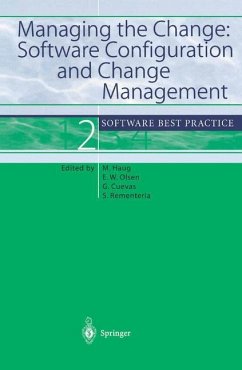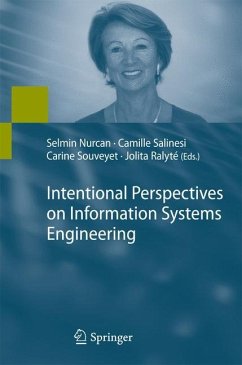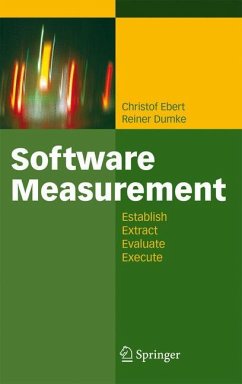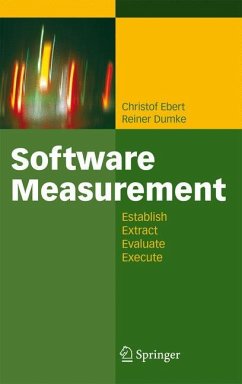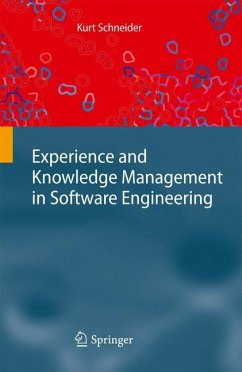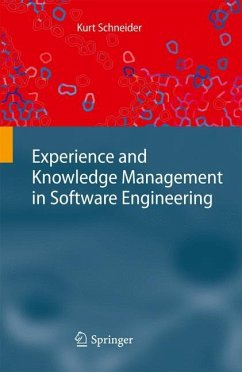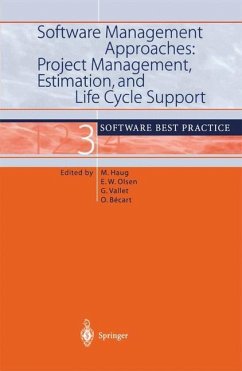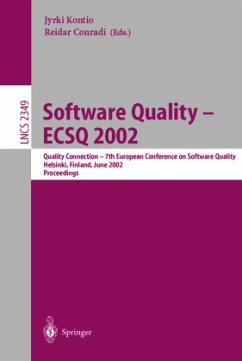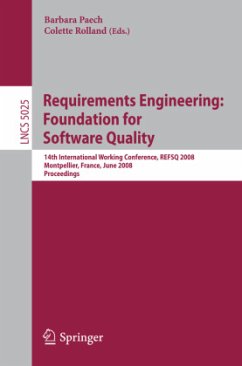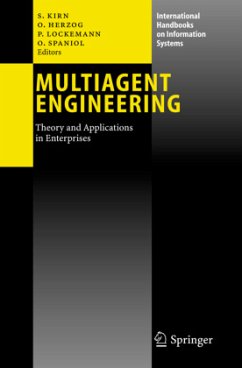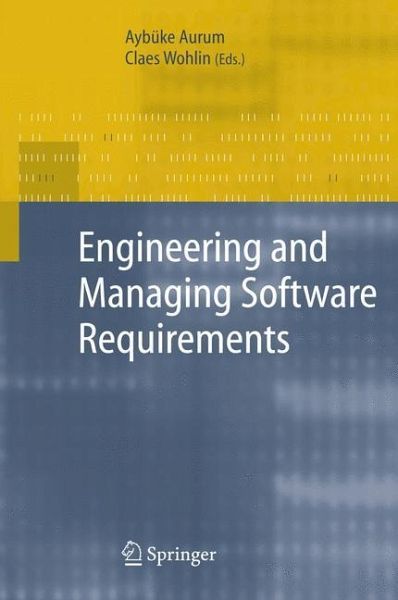
Engineering and Managing Software Requirements

PAYBACK Punkte
57 °P sammeln!
Requirements engineering is the process by which the requirements for software systems are gathered, analyzed, documented, and managed throughout their complete lifecycle. Traditionally it has been concerned with technical goals for, functions of, and constraints on software systems. Aurum and Wohlin, however, argue that it is no longer appropriate for software systems professionals to focus only on functional and non-functional aspects of the intended system and to somehow assume that organizational context and needs are outside their remit. Instead, they call for a broader perspective in ord...
Requirements engineering is the process by which the requirements for software systems are gathered, analyzed, documented, and managed throughout their complete lifecycle. Traditionally it has been concerned with technical goals for, functions of, and constraints on software systems. Aurum and Wohlin, however, argue that it is no longer appropriate for software systems professionals to focus only on functional and non-functional aspects of the intended system and to somehow assume that organizational context and needs are outside their remit. Instead, they call for a broader perspective in order to gain a better understanding of the interdependencies between enterprise stakeholders, processes, and software systems, which would in turn give rise to more appropriate techniques and higher-quality systems.
Following an introductory chapter that provides an exploration of key issues in requirements engineering, the book is organized in three parts. Part 1 presents surveys of state-of-the art requirements engineering process research along with critical assessments of existing models, frameworks and techniques. Part 2 addresses key areas in requirements engineering, such as market-driven requirements engineering, goal modeling, requirements ambiguity, and others. Part 3 concludes the book with articles that present empirical evidence and experiences from practices in industrial projects.
Its broader perspective gives this book its distinct appeal and makes it of interest to both researchers and practitioners, not only in software engineering but also in other disciplines such as business process engineering and management science.
Following an introductory chapter that provides an exploration of key issues in requirements engineering, the book is organized in three parts. Part 1 presents surveys of state-of-the art requirements engineering process research along with critical assessments of existing models, frameworks and techniques. Part 2 addresses key areas in requirements engineering, such as market-driven requirements engineering, goal modeling, requirements ambiguity, and others. Part 3 concludes the book with articles that present empirical evidence and experiences from practices in industrial projects.
Its broader perspective gives this book its distinct appeal and makes it of interest to both researchers and practitioners, not only in software engineering but also in other disciplines such as business process engineering and management science.





